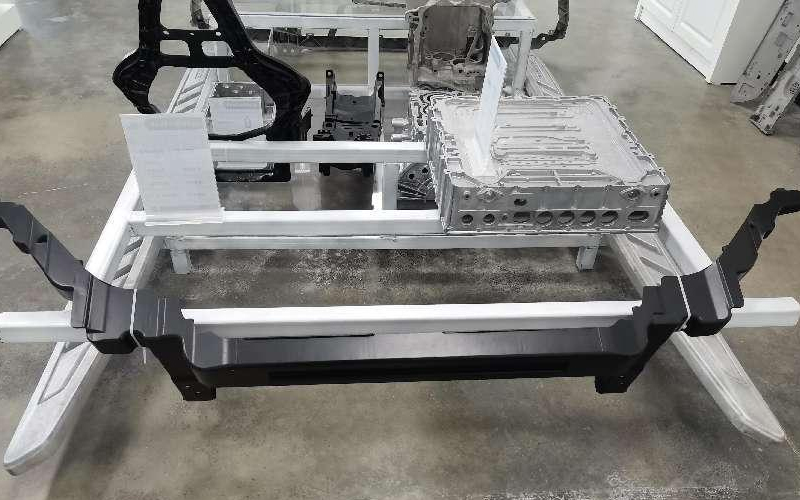Introduction
Conversion coating is a chemical treatment process applied to aluminum surfaces to enhance their performance and durability. It involves the transformation of the surface layer of the metal into a more resilient and corrosion-resistant compound. This article will delve into the benefits and applications of conversion coating on aluminum surfaces.
Benefits of Conversion Coating
1. Corrosion Resistance: One of the primary advantages of conversion coating is its ability to enhance the corrosion resistance of aluminum surfaces. The conversion coating forms a protective layer that acts as a barrier, preventing the metal from coming into direct contact with corrosive elements in the environment. This corrosion resistance is particularly crucial in industries where aluminum is exposed to harsh conditions, such as marine and aerospace applications.
2. Improved Adhesion: Conversion coating promotes better adhesion of subsequent coatings, such as paints and primers, to the aluminum surface. The treated surface provides a more receptive and uniform substrate for these coatings, ensuring better bonding and longer-lasting finishes. This benefit is especially valuable in industries where aesthetics and durability are essential, such as automotive and architectural sectors.
3. Electrical Insulation: Conversion coating can also enhance the electrical insulation properties of aluminum surfaces. The treated surface forms a thin layer that provides electrical resistance, preventing the flow of current through the metal. This characteristic is beneficial in electronics and electrical equipment manufacturing, where ensuring proper insulation is critical for safety and performance.
4. Paint Adhesion: The conversion coating process significantly improves the adhesion of paints and other organic coatings to aluminum surfaces. It creates an ideal surface for the subsequent application of these coatings, allowing them to adhere more effectively and resist delamination and peeling. This benefit is highly advantageous in various industries, including automotive, aerospace, and consumer electronics.
Applications of Conversion Coating
1. Automotive Industry: Conversion coating is extensively used in the automotive industry to enhance the durability and corrosion resistance of aluminum components. It is employed in the production of various parts, including body panels, chassis, and engine components. The treated surfaces are then coated with paint or other protective finishes to ensure long-lasting performance and aesthetics.
2. Aerospace Industry: Aluminum is a widely used material in the aerospace industry due to its lightweight and high strength characteristics. Conversion coatings are applied to aerospace components to mitigate the effects of corrosion caused by exposure to extreme environmental conditions, such as high altitude and temperature variations. The treated surfaces provide a protective barrier, ensuring the longevity and reliability of critical aircraft parts.
3. Electronics and Electrical Equipment: Conversion coating finds applications in electronics and electrical equipment manufacturing, primarily for improving electrical insulation properties. The treated aluminum surfaces are used in the production of components like heat sinks, connectors, and circuit boards. The conversion coating ensures proper electrical insulation, preventing short circuits and other electrical failures.

4. Construction and Architecture: The construction and architectural industries widely benefit from conversion coating on aluminum surfaces. It enhances the corrosion resistance and durability of aluminum structures, including windows, doors, and exterior cladding. The treated surfaces provide a protective barrier against harsh weather conditions, extending the lifespan of these architectural elements.
Conclusion
Conversion coating offers several advantages for aluminum surfaces, making it a popular technique in various industries. It enhances corrosion resistance, improves adhesion of subsequent coatings, and provides electrical insulation properties. The automotive, aerospace, electronics, and construction industries are some of the key sectors that benefit from the use of conversion coating on aluminum surfaces. By utilizing this process, manufacturers can ensure the longevity, performance, and aesthetics of their aluminum components and structures.
-

- Ποδήλατα για παιδιά Παιδικά Ποδήλατα για Παιδιά 3-16 ετών /OEM Baby Children Cycle Kids Mountain Bicycles 2022
-

- OEM ζάντες από κράμα μαγνησίου χύτευσης υψηλής πίεσης για e-bike
-

- Magnesium alloy Thixomolding power batter housing
-

- Εξαιρετικά ελαφρύ πιρούνι ανάρτησης για MTB
-

- Magnesium alloy rigid fork for bicycle -customized die casting metal parts
-

- Κάλυμμα UAV εξαρτημάτων thixomoolding από μαγνήσιο υψηλής ακρίβειας

 0086-750-5616188
0086-750-5616188 +86 13392089688
+86 13392089688 sales@zhongmei-tech.com
sales@zhongmei-tech.com







